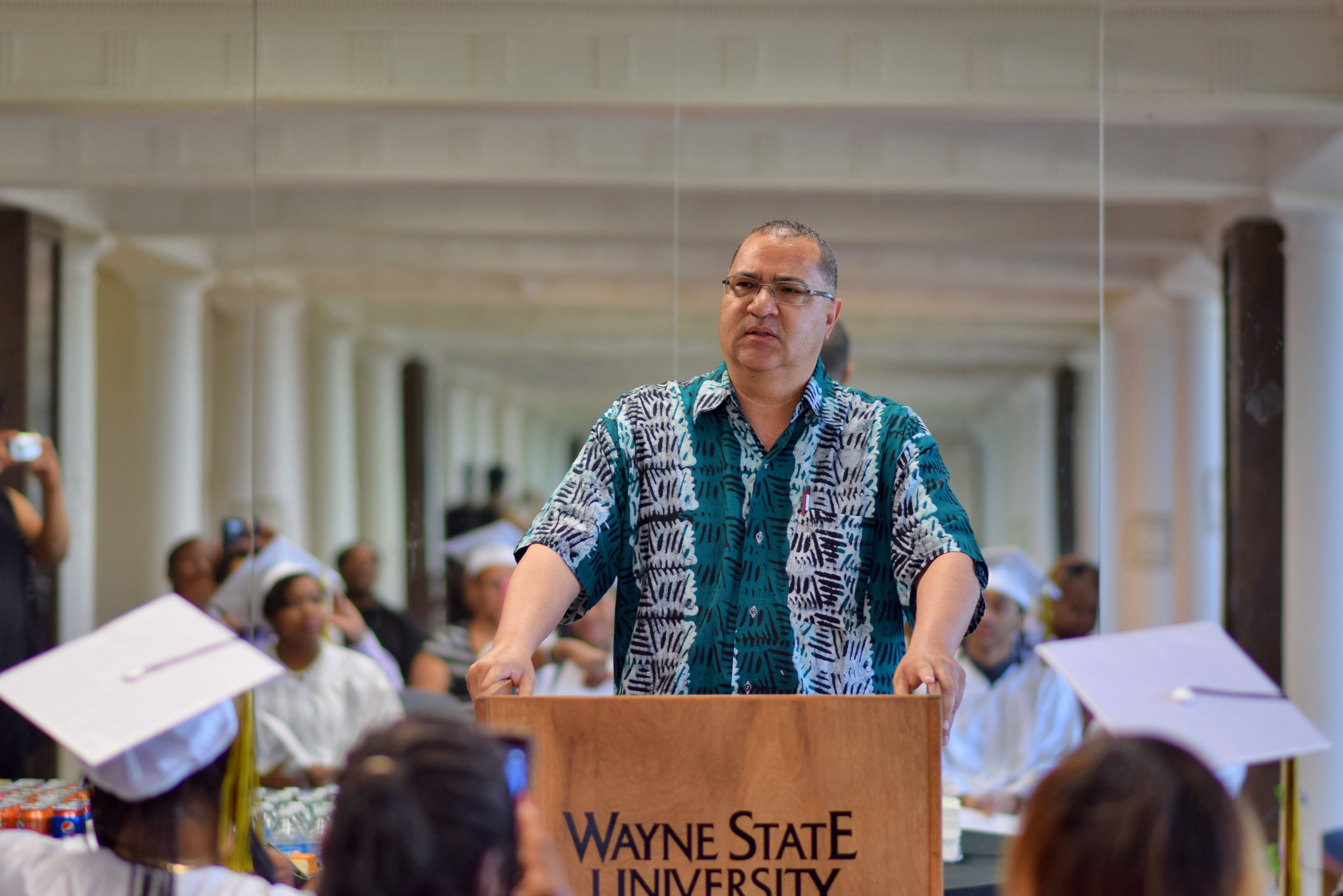
Ollie Johnson, Ph.D, can recall clearly his family’s reaction when, while still a college undergrad, he announced to them that he was planning to pursue a degree in Black Studies.
“Some of them asked me: ‘Why are you doing that? What kind of job can you get with that?’” Johnson said. “And these are people who love me. They want me to do well so they weren’t asking out of any ill will — but because they were unfamiliar with the discipline and, in some instances, underestimating the importance of the study of black history, culture, politics and black people in general.
“They didn’t understand the significance of what Black Studies represented.”
Several decades later, now the chair of the Department of African American Studies at Wayne State, Johnson shakes his head in amazement as he speaks of a student telling a distressingly similar story — just a week ago.
“One of our African American Studies majors told me that her black father asked her the same question,” said Johnson. “‘Why are you majoring in African American Studies? What can you do with the major?’”
But as Black/African American/Africana Studies now enters its 50th year as an interdisciplinary academic field — an anniversary that Johnson’s department will celebrate through 2019 as part of its “50 Years of Black Studies” campaign — Johnson said he long ago figured out the most accurate response to the skeptical question posed by his family and his student’s dad.
“What can you do with a degree in African American Studies? The short answer is, Anything you want to do — anything and everything. You can be a policeman. You can be a fireman. You can be a journalist. You can be a university professor. You can be a government official. You can be an actress. We cover a lot of ground so, if you take Black Studies seriously, you are well prepared once you leave these hallowed halls – for whatever you want to do. Like any other area of study, you may need graduate training. You may need specialization. But you can do it. You can do anything you want with a major in Black Studies.”
The 50th anniversary campaign — which marks the launch of the nation’s first university- level Black Studies program, created in 1968 at San Francisco State University — is designed to showcase the power and versatility of the discipline.
Johnson said the campaign will feature keynote lectures from nationally respected experts in the field. He’s also working on a “career day” showcase during which successful African American Studies majors who’ve graduated can return and promote the discipline to others. Johnson said he also hopes to organize a “Black Studies Summit” that brings together leaders of African American Studies departments and programs at colleges throughout the state.
Brandishing a brochure promoting the WSU Department of Black Studies and possible careers in fields ranging from public health to urban planning, Johnson reiterated his pride in both his academic pursuit and in the resilience of the Black Studies discipline.
“There’ve always been haters who try to muddy the waters when it comes to importance of studying black history and culture and people, but we’re trying to break down those stereotypes,” he said. “We come from a righteous tradition of trying to make America and the world a better place, and we take it seriously. I’m so proud to be chair now because I feel like we’re doing good work, and I am proud that I majored in African American Studies. We want to break down the notion that African American Studies is not enough, that it’s insufficient. It’s a good foundation for whatever you want to go into, and this is a great discipline.”
